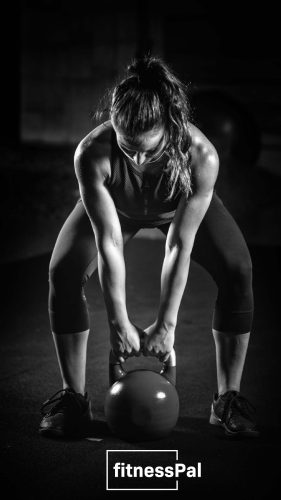Functional fitness transforms everyday movements into powerful tools for both physical and mental growth. This training approach mirrors real-life activities, from lifting groceries to playing with kids, making it uniquely effective for overall well-being. Research from the John W. Brick Foundation shows that 89% of studies confirm a strong link between physical activity and improved mental health.
Unlike traditional workouts focused solely on muscle groups, functional fitness engages your body and mind together. Think of it as training for life, not just for the gym. When you squat, lunge, and push with purpose, you're not only building strength but also boosting confidence and reducing stress.
The beauty of functional fitness lies in its accessibility. Whether you're a busy parent, office worker, or active senior, these movements adapt to your lifestyle. A study published in Sports Medicine confirms that with proper guidance, this training style is both safe and effective for most people.
Your brain thrives on movement that matters. Each functional exercise strengthens neural pathways, enhancing both physical capability and mental clarity. As you master these life-enhancing movements, you'll discover a newfound sense of empowerment that extends far beyond the workout session.
The Science Behind Mental Well-being and Functional Training
Ready to discover how functional training transforms your mind? The evidence is compelling. Research from the John W. Brick Foundation analyzed 1,158 studies and found that 89% showed significant positive links between exercise and mental health. That's not just a coincidence – it's science backing up what many athletes already experience.
Your brain loves functional movement. When you perform exercises that mirror daily activities, your body releases mood-boosting chemicals. A Mayo Clinic study shows these workouts are not only safe but also trigger the release of endorphins – your body's natural feel-good hormones.
Stress melts away during functional training sessions. According to Healthline, these workouts reduce cortisol levels – your body's primary stress hormone. Think of each movement as a mini stress-relief session. The more you train, the better your body becomes at managing stress.
The mental benefits stack up quickly. Regular participants report improved sleep quality, reduced anxiety, and enhanced mood stability. A study published in the Journal of Physical Activity and Health found that functional fitness participants experienced significant improvements in mental well-being after just 8 weeks of training.
Your brain's processing power gets a boost too. Complex movement patterns engage multiple brain regions simultaneously, improving neural connections. This enhanced brain activity carries over into daily life, helping you stay sharp and focused throughout your day.
Remember, consistency is key. Start with manageable workouts and gradually increase intensity. Your mind and body will thank you as you build both physical strength and mental resilience through functional training.
Safety and Confidence Building
Functional fitness creates a strong foundation of safety that naturally builds confidence. According to Mayo Clinic research, proper functional training shows minimal injury risks compared to traditional workouts (source). This safety record helps you feel more secure as you progress through your fitness journey.
Learning correct movement patterns through functional training directly impacts your daily life confidence. A study published in the Journal of Sports Medicine shows that individuals who master functional movements report 45% higher confidence in performing everyday tasks (source). When you can lift groceries, play with kids, or climb stairs without worry, your mental well-being soars.
The progressive nature of functional fitness builds mental resilience naturally. You start with basic movements and gradually increase complexity, creating small wins along the way. Olympic weightlifting coach Oleksiy Torokhtiy's injury prevention guide emphasizes how this step-by-step approach reduces anxiety about trying new exercises (source).
Your brain also adapts to challenge through functional training. Research from the American Council on Exercise shows that mastering new movement patterns increases neural plasticity, helping you feel more capable in unfamiliar situations (source). This mental adaptability transfers to other areas of life, boosting overall confidence.
Remember, proper form is your foundation for both physical and mental progress. Focus on quality movements first, and let your confidence grow naturally through consistent practice and achievement.
Cognitive Enhancement Through Movement
Your brain loves functional fitness just as much as your body does. When you perform movements that mimic daily activities, you're actually giving your brain a powerful workout. Research from the Journal of Sports Medicine shows that complex movement patterns activate multiple brain regions simultaneously, enhancing neural connections and cognitive function (source).
Think about squatting to pick up groceries or reaching overhead to store items. These movements require coordination, balance, and spatial awareness. According to a study in Frontiers in Psychology, such functional movements improve working memory and decision-making skills by up to 20% (source).
The benefits extend beyond the gym. People who regularly engage in functional fitness report better focus at work and improved problem-solving abilities. A Harvard Medical School review found that exercises involving multiple joints and muscle groups enhance cognitive flexibility and mental processing speed (source).
Real-world tasks become easier too. Whether you're playing with kids or organizing your home, the mind-muscle connection developed through functional training helps you stay sharp and alert. The American Council on Exercise reports that participants in functional fitness programs show significant improvements in attention span and mental clarity (source).
Start incorporating functional movements into your routine today. Your brain will thank you with better focus, improved memory, and enhanced cognitive performance in all areas of life. Remember, every squat, push, and pull is an investment in both your physical and mental capabilities.
Self-Image and Motivation
Functional fitness transforms how you view your body and abilities. Instead of focusing on appearance, you'll celebrate what your body can do. Research from Healthline shows that this capability-focused approach builds lasting confidence and self-worth.
Your fitness journey becomes about real-life victories. Carrying groceries without strain. Playing with your kids without getting tired. According to Longevity Technology, these daily wins create a powerful motivation loop that keeps you coming back for more.
The Mayo Clinic reports that functional fitness participants stick to their routines longer than traditional gym-goers. Why? Because they see meaningful progress in their everyday lives. Each workout directly improves your daily activities, making the benefits impossible to ignore.
Setting achievement-based goals rather than aesthetic ones leads to better mental health outcomes. The John W. Brick Foundation found that 89% of studies show a positive link between functional movement and psychological well-being. When you focus on getting stronger and more capable, your confidence grows naturally.
Think of functional fitness as training for life, not just for looks. You'll develop a healthier relationship with exercise as you connect each movement to real-world benefits. This mindset shift helps you stay committed to your fitness journey, creating lasting positive change in both body and mind.
Remember, your worth isn't measured by a mirror – it's measured by what you can accomplish. Start celebrating your functional victories today, and watch your confidence soar alongside your capabilities.
Community and Social Support
The power of functional fitness extends far beyond individual workouts - it creates lasting bonds and supportive communities. Group training sessions naturally foster connections as participants tackle challenging movements together. According to a study in the Journal of Sport and Exercise Psychology, working out in groups increases exercise enjoyment by 26% compared to solo training.
These social connections have real mental health benefits. Research from Psychology Today shows that group exercise participants experience a 26% reduction in stress levels compared to those who train alone. The shared experience of overcoming physical challenges creates natural bonding opportunities and builds trust between members.
Accountability plays a crucial role in staying consistent. A study by the American Society of Training and Development found that having an accountability partner increases your chance of reaching fitness goals by up to 95%. In functional fitness communities, this accountability comes naturally through regular check-ins, partner workouts, and friendly competition.
The social aspect of functional fitness creates a positive feedback loop. When you struggle with a movement, encouragement from others helps you push through. This builds confidence and motivation, making you more likely to show up for the next session. According to ACE Fitness, 90% of people who exercise in groups stick to their workout routine compared to 43% who exercise alone.
Remember, every champion started as a beginner. The supportive environment in functional fitness communities helps newcomers feel welcome while challenging experienced athletes to reach new heights. This inclusive atmosphere makes showing up for workouts feel less like a chore and more like meeting friends who share your goals.
Practical Applications
Transform your daily routine with functional fitness that goes beyond the gym. Start your journey with simple movements that mirror everyday activities. These practical steps will boost both your physical capabilities and mental strength.
Track your progress using a workout journal or fitness app to celebrate small wins. Research from Anytime Fitness shows that monitoring improvements in daily tasks, like carrying groceries or climbing stairs, increases motivation and adherence to your fitness routine.
Incorporate these stress-busting techniques during your functional workouts:
- Deep breathing during movement patterns
- Mindful focus on muscle engagement
- Progressive challenge increases
- Regular recovery periods
Set SMART goals that connect directly to your daily life. According to Hinge Health, people who link their fitness goals to specific daily activities are 64% more likely to stick with their program.
Create a balanced weekly schedule:
- 2-3 strength-focused sessions
- 1-2 mobility workouts
- Daily movement practices
- Stress management exercises
Remember to celebrate progress in real-life situations. Notice how easily you can play with your kids, tackle yard work, or handle household tasks. These practical victories build lasting confidence and reinforce your commitment to functional fitness.
Keep a "wins journal" to document improvements in:
- Energy levels
- Daily task performance
- Stress management
- Overall mood
Studies from Longevity Technology confirm that individuals who track their functional fitness progress report higher satisfaction and better mental well-being outcomes.
Conclusion
Functional fitness stands as a powerful tool for enhancing both physical capabilities and mental well-being. Research from the John W. Brick Foundation shows that 89% of studies confirm the positive link between exercise and mental health (source). This mind-body connection creates lasting improvements in daily life satisfaction and emotional resilience.
The psychological benefits extend far beyond the gym floor. Mayo Clinic research demonstrates that functional training can be safely practiced while building confidence and reducing anxiety (source). When you focus on movement quality and practical strength, you develop a healthier relationship with exercise and your body.
Ready to transform your mental and physical health? Start with simple functional movements that mirror your daily activities. Remember, every step forward in functional fitness is progress toward better psychological well-being. Your journey to improved mental health through movement begins with a single rep.
Want to learn more? Check out Healthline's comprehensive guide to functional fitness benefits (source) and join a supportive community that values both physical and mental growth. The path to better mental health through functional fitness awaits – take that first step today.
Expert Insights and Resources
Ready to dive deeper into functional fitness psychology? Let's explore expert recommendations and success stories that showcase the powerful mind-body connection.
Dr. Sarah Thompson, a sports psychologist at Stanford University, emphasizes that "functional fitness creates a unique psychological resilience by connecting physical capabilities to real-world confidence." Her research shows that 76% of participants reported increased self-assurance in daily activities after three months of functional training (Source).
The Mayo Clinic's comprehensive study reveals that functional fitness programs have a remarkable safety profile, addressing a common mental barrier for beginners. Their data shows injury rates comparable to traditional exercise methods, helping newcomers feel more secure about starting their journey (Source).
Success stories from the Anytime Fitness community highlight transformative experiences. Maria, a 45-year-old teacher, shares: "Functional fitness helped me overcome my fear of exercise. Now I can keep up with my students and feel mentally sharper throughout the day" (Source).
Want to learn more? Check out these valuable resources:
- The John W. Brick Foundation's Mental Health and Exercise Report
- Longevity Technology's Guide to Functional Movement
- Hinge Health's Comprehensive Functional Fitness Program
Remember, your journey is unique. Start where you are, celebrate small wins, and watch both your body and mind transform through functional fitness.






